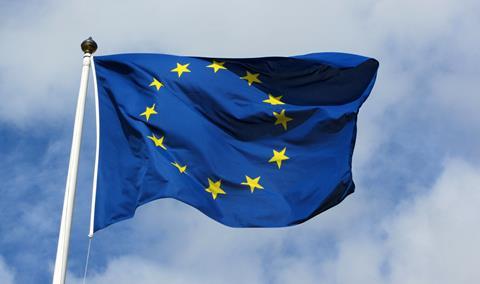EXCLUSIVE: The European Commission (EC) is planning changes to its Creative Europe programme from 2016.

In preparation for the forthcoming Creative Europe Programme Committee meeting in Brussels, the EC’s Education, Audiovisual and Culture Executive Agency (EACEA) has drawn up revised and updated guidelines for the Culture and MEDIA sub-programmes based on the experience of Creative Europe’s first year of operations from January 1, 2014.
Innovation and the use of the latest digital technologies will be given greater emphasis in the guidelines for training under the MEDIA sub-programme, according to the EACEA’s proposals.
In future, eligible training activities will include those offering training in “new modes of distribution and exploitation using the latest digital technologies including social media” as well as training in “knowledge sharing and networking capabilities”, while the award criteria will now also take “the deployment of digital technologies” and “the technical and management experience of the [project] team” into account.
Level playing field
On the distribution side, the EACEA is aiming to ensure a level playing field between high and low production capacity countries in the automatic scheme for the distribution of non-national European films by changing the parameters for the calculation of a potential “fund” by distributors.
This “fund” is based on the admissions achieved by European non-national films distributed by the applicant in a reference year.
In addition, the EACEA proposes to change the guidelines in its selective distribution scheme by deleting group joining from the award criteria “in order to encourage distributors to be part of a group from the beginning” and by raising the minimum number of screenings per week from two to five “in order to increase the visibility of the fim in cinemas and encourage better distribution campaigns.”
As far as the support to TV programming of European audiovisual works is concerned , the EACEA points out that the experience of first year of Creative Europe “has demonstrated that second and third seasons of European drama series are more common than expected with better financing and higher budgets.”
Consequently, it is being proposed to focus the “limited resources” for this funding category by limiting the maximum award of €1m ($1.1m) to first seasons of drama series “for which the producers take a real risk and for which the award will have a very important impact.”
Co-production Funds
Moreover, there are proposals for changes to the payment arrangements for Creative Europe’s new support category for international co-production funds such as those launched last year by the Hubert Bals Fund, the Berlinale’s World Cinema Fund and the Torino Film Lab.
The pre-financing payment is now to be divided into two steps: “10% upon signature and 60% upon the selection of the co-productions (the moment at which a successful applicant requires the funds).”
Medium production capacity
Recommendations from the Creative Europe Committee’s Level Playing Field Working Group willl see the introduction of a medium production capacity country group category for the automatic award criteria in the applications for single project or slate funding development.
Austria, Belgium, Denmark, Finland, Ireland, Norway, The Netherlands, Poland, Sweden, and Switzerland would therefore qualify as countries with medium production capacity for an extra five points.
Video games
Moreover, the practical experience of Creative Europe’s support of the development of European video games in the first of the scheme have resulted in some fine-tuning in definitions.
As from 2016, the story in a video game “must be told or shown throughout the whole game (in-game storytelling) and not only as an introduction or an ending to the game”.
In addition, another four sub-categories have been added to the list of ineligible activities: versus-fighting games, word and spelling games, number games and mind games.
The EU’s Creative Europe framework programme for the cultural and creative industries was launched at the beginning of 2014 with a budget of €1.46bn ($1.57bn) over seven years to 2020.
Funding briefs
Italy’s Producer on the Move Arturo Paglia of Rome-based Paco Cinematografica is one of the first recipients of funding from the German-Italian Co-Production Development Fund (GICF) which was launched by the FFA and MIBACT last autumn.
A total of €100,000 ($108,000) was allocated in this first funding session.
Paco received development support for Giorgio Diritti’s next feature Lubo which will be co-produced with Hamburg-based C-Films.
Funding was also given to another five German-Italian co-production teams including:
- Pandora Film and Dorje Film’s Vivaldi on the life of the famous composer, to be directed by Bille August from a screenplay by Peter Schneider;
- Stefano Lodovichi’s Children of the Ice, to be produced by Mood Film with Jonas and Jakob Weydemann of Cologne-based Weydemann Bros;
- Felix Randau’s Ötzi - Der Mann aus dem Eis, with Jürgen Vogel cast in the title role, as a co-production between Port-au-Prince Pictures and Bolzano-based Echo Film.
Basle’s film funding boost
The Swiss city of Basle and surrounding region has received a major boost in its ambitions to become an attractive production location to compete with other centres in Switzerland such as Zurich and Berne.
The City of Basle authorities agreed to increase its budget for film funding from the previous annual CHF 300,000 ($310,000) to CHF 900,000 ($935,000) as part of a new funding model for 2015-2018.
In addition, the canton of Basle has raised its annual film funding budget from CHF 200,000 ($208,000) to CHF 350,000 ($363,000).
In accordance with the new film funding model, the city and region will also receive CHF 1.5m ($1.56m) kicking in from the Swisslos lottery fund for investment in larger-scale projects.
Taken as a whole, film producers in the Basle region will now be able to access CHF 2.75m ($2.86m) annually compared to the previous CHF 500,000 ($520,000).






![The Brightest SunScreen[Courtesy HKIFF]](https://d1nslcd7m2225b.cloudfront.net/Pictures/274x183/3/5/0/1448350_thebrightestsunscreencourtesyhkiff_312678.jpg)


















No comments yet